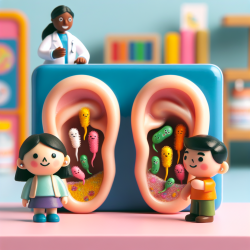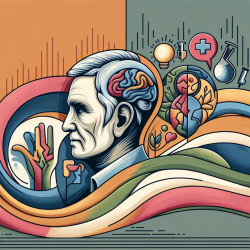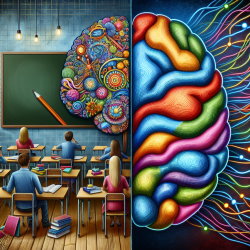The field of special education is ever-evolving, with new research continually shedding light on complex disorders that affect our students. One such disorder that has recently gained attention is CHAMP1-related neurodevelopmental disorder. This genetic syndrome is associated with a range of challenges including developmental delay, intellectual disability, autism spectrum disorder (ASD), attention-deficit/hyperactivity disorder (ADHD), repetitive behaviors, and sensory symptoms.
Understanding CHAMP1 Disorder
CHAMP1 disorder is caused by pathogenic variants in the CHAMP1 gene, which is crucial for proper chromosome segregation. The disorder presents a complex neurobehavioral phenotype that includes a variety of behavioral and sensory challenges. Recent research has provided deep phenotyping results for individuals with CHAMP1 disorder, revealing that 33% of participants were diagnosed with ASD and 60% met criteria for ADHD.
Key Findings from Recent Research
- Autism Spectrum Disorder: Approximately one-third of individuals with CHAMP1 disorder have been diagnosed with ASD. This highlights the importance of early screening and intervention for autism-related symptoms.
- ADHD Prevalence: A significant portion of individuals also meet criteria for ADHD, yet treatment rates remain low. This suggests an area for potential intervention to improve outcomes.
- Sensory Symptoms: Sensory-seeking behaviors are prominent among those with CHAMP1 disorder, indicating a need for targeted sensory interventions.
Implications for Practitioners
For practitioners working with students who have CHAMP1 disorder or similar neurodevelopmental challenges, there are several key takeaways from this research:
- Early Identification and Intervention: Recognizing the signs of ASD and ADHD early can lead to more effective interventions and better outcomes for students.
- Sensory Integration Therapy: Given the prevalence of sensory-seeking behaviors, incorporating sensory integration strategies into therapy can be beneficial.
- Collaboration with Families: Engaging families in the therapeutic process ensures that interventions are consistent across home and school environments.
The Future of Research
This study represents a significant step forward in understanding CHAMP1 disorder, but there is still much to learn. Practitioners are encouraged to stay informed about ongoing research and consider participating in studies that further explore these complex neurobehavioral phenotypes.
To read the original research paper, please follow this link: CHAMP1 disorder is associated with a complex neurobehavioral phenotype including autism, ADHD, repetitive behaviors and sensory symptoms.










